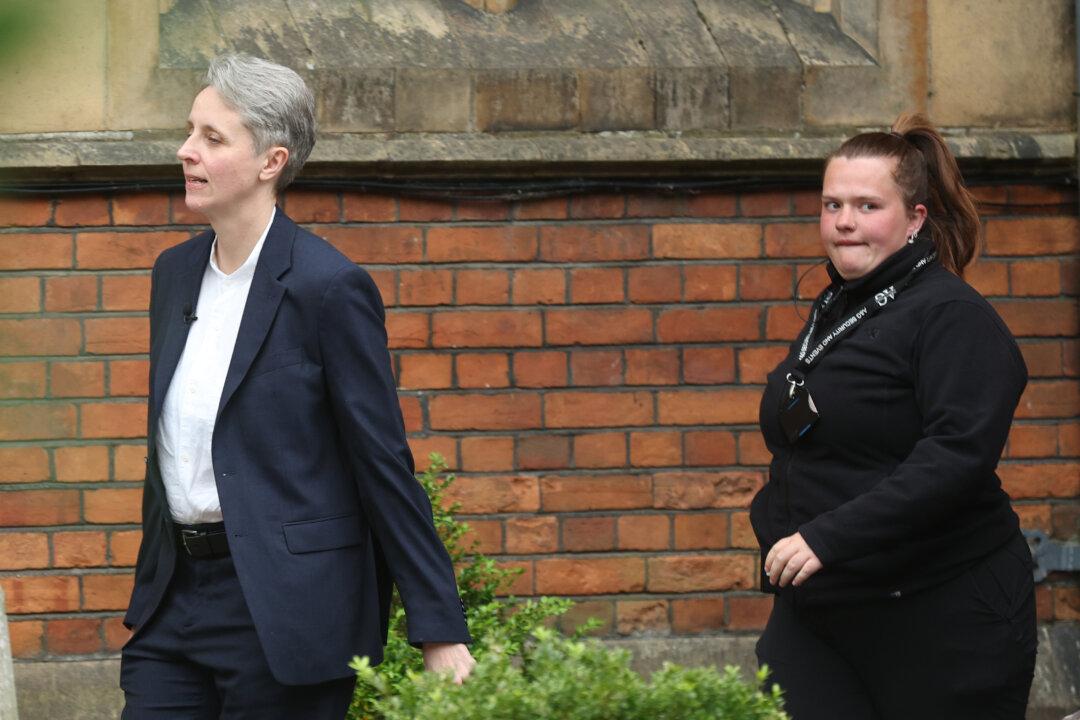A protester glued herself to the floor after LGBT activists stormed a university talk by gender critical feminist Kathleen Stock.
Police forcibly removed trans campaigner Riz Possnett—who wore a T-shirt with the slogan “no more dead trans kids"—as audience members inside Oxford Union urged Stock to carry on with her speech.





